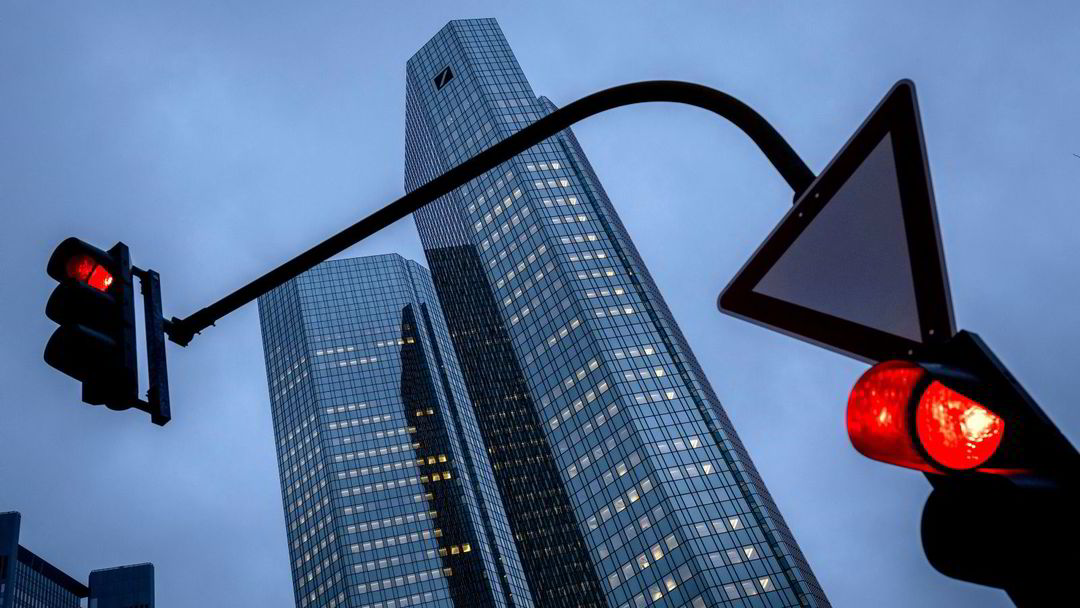Last Friday there was a banking panic in the world’s financial markets again. After earlier episodes with the collapse of Silicon Valley Bank and Credit Suisse, it was now Deutsche Bank that made waves. It ended with a deep price drop for the German bank, a broad decline for competitors and ugly figures all the way into the stock market in Norway.
Now the news agency Bloomberg writes that sources at supervisory authorities have looked into a single trade which they believe may have triggered the unrest that spread globally that day.
We are talking about a bet of a mere five million euros, or NOK 56 million, on so-called credit default swaps (CDS) linked to parts of Deutsche Bank’s debt. These derivatives are instruments that provide a payout in the event of default on the debt they are linked to, i.e. a kind of insurance. On this day, the price of some of Deutsche Bank’s CDSs, which are linked to the bank’s euro debt, rose to their highest level since they came to market in 2019.
Five million euros is not small change, but it pales in comparison to the 1.6 billion euros that Deutsche Bank lost in market value and the multiple billions of euros that flowed out of the banking sector alone – not to mention the wider equity and debt markets.
2.5 million kroner?
Moreover, SEB debt strategist Thomas Eitzen points out in a short note sent to clients on Tuesday evening, as a comment on the Bloomberg article, that the buyer of the CDS could theoretically be satisfied with providing a fraction of the value as margin to execute the trade .

Thomas Eitzen in SEB. (Photo: Elin Høyland)
“How much money do you need to (almost) start a financial crisis?” is the title of Eitzen’s note. The figure is a bit difficult to calculate, he points out, but could be approximately NOK 2.5 million.
It is not known who is behind the trade in question, nor are there any suspicions that there is anything wrong with it, writes Bloomberg. A source tells the news agency that it may have been a hedging transaction, i.e. to spread and reduce risk.
What the article points out is that this CDS market can be very liquid, meaning that there are few transactions and that individual trades can therefore cause large movements.
Deutsche Bank did not want to comment on the matter to Bloomberg. (Terms)Copyright Dagens Næringsliv AS and/or our suppliers. We would like you to share our cases using links, which lead directly to our pages. Copying or other forms of use of all or part of the content may only take place with written permission or as permitted by law. For further terms see here.
